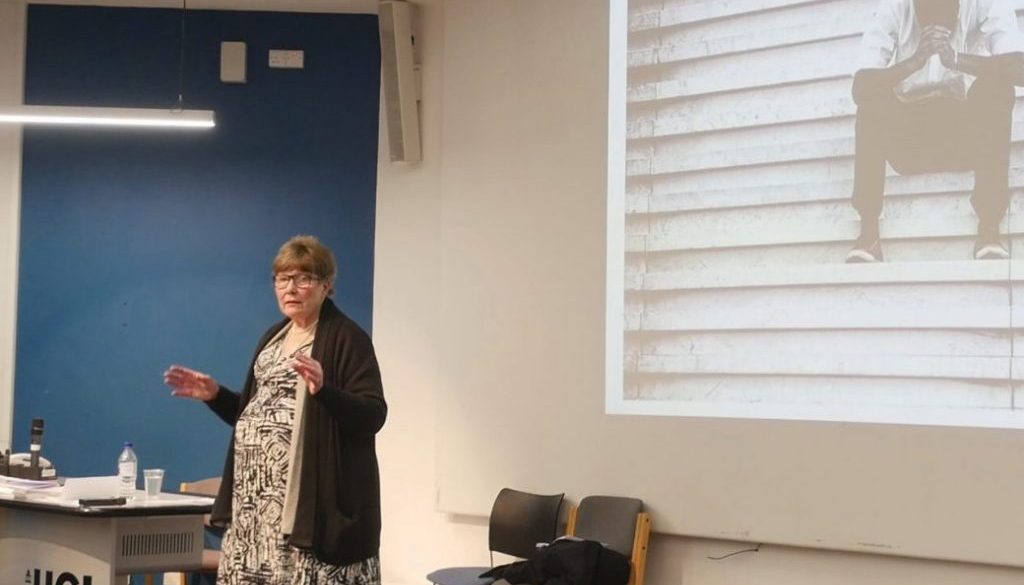How can you help men who are falsely accused of sexual abuse? Notes from the FASO Helpline
The following article, by Margaret Gardener, is published today on the malepsychology.org.uk website. The original article can be found HERE.
Let me ask you to do a thought experiment:
Have you ever considered the possibility that you could be arrested in your own home in front of your family and friends and neighbours, held in a police cell, interviewed under caution, charged and bailed or remanded to appear in court, when you haven’t actually done anything?
and
That your photograph, name and address, might appear in the local and national press and on TV, insinuating what an evil monster you are?
and
That having been released without charge or with all charges dropped, with your good name and integrity still intact (at least in the eyes of the law) you might be subjected to additional investigation by the social services and other agencies, where you may have no right of representation or comment?
and
That social services could force you to break off contact with your family and children?
and
Without proof, evidence, witnesses, or corroboration you could be convicted and sentenced to several years in prison when you haven’t actually done anything?Having thought about, how would you feel now if one or more of the above scenarios really happened to you?
Empathy is key
When trying to understand the psychology of what the falsely accused feel, you have to firstly put yourself in their position. The first step to helping them is to try to understand how people that seek our support feel.Some contact FASO regularly; others just occasionally. Some understandably feel they cannot cope and sadly feel suicidal. They tell us that sharing their stories with people who understand what they are going through can be cathartic, and they generally feel better because we know what they are going through.
Families who phone for support for those in this situation feel helpless. They tell us that their loved ones withdraw and won’t speak to anyone. They won’t go out, see a doctor, or take up opportunities for support. The family member is often scared for the sanity of themselves and their loved ones, including children of course. Children cry. They can’t understand why they can’t see the accused person. We all feel the huge stress that false accusations bring.
The accused person can experience a huge range of emotions and mental health issues: extreme stress; feeling that no-one will listen despite having to repeat themselves constantly; often having a shaky voice which leads to tears of anger, frustration. Crucially they feel utter disbelief: why would someone make such heinous yet untrue accusations? Some of the thoughts we hear about are:
·
What made them make an allegation that I am such a monster? Where did such a thought come from?
·
My head is whirling; I feel sick; cannot concentrate; I can’t eat or sleep. I am collapsing and feel suicidal!
·
Where do I go? I won’t go out as friends might believe the allegations. Where/who do I turn to? I am isolated from everyone. I have nowhere to live!
·
My family is destroyed. My partner and children are crying for me as I am for them.
·
Why is it taking so long to be investigated? How am I to manage in the court – what is it like? I don’t understand what the barrister and solicitor are saying. I can’t even get a lawyer as I can’t afford it. Why can’t all my evidence be used in court – I am told it is not allowed?
There is no euphoric feeling if a not guilty vote by the jury is returnedIt often takes months/years of heartache, maybe losing the family, costing the earth, losing a job forever with the trauma still within the individual. “No, I cannot get on with life”, they say; “it will never be the same again”.
Note that the above issues are the reactions of those who are newly accused. The reactions of the falsely accused who are in prison is another matter. They have ongoing issues to deal with and more to come when they are released from prison.FASO has been operating now for 17 years. We are volunteers without any funding. We can offer a sympathetic ear, but we can’t give desperate people the answers or practical support they want or need. We are not lawyers and cannot offer legal or counselling services. We can only perform a “sticking plaster” service of being a friendly, supportive ear and try to signpost people to other services that may be able to help. But those services are in very short supply in a broken criminal justice system. The UK government in 2000 estimated that there were around 120,000 false accusations annually. FASO sees just the tip of this very large iceberg, and the number of people who we cannot help is too overwhelming to contemplate.

![16[2]](https://mojoscotland.org/wp-content/uploads/2024/06/162-1024x768-394x330.jpg)

